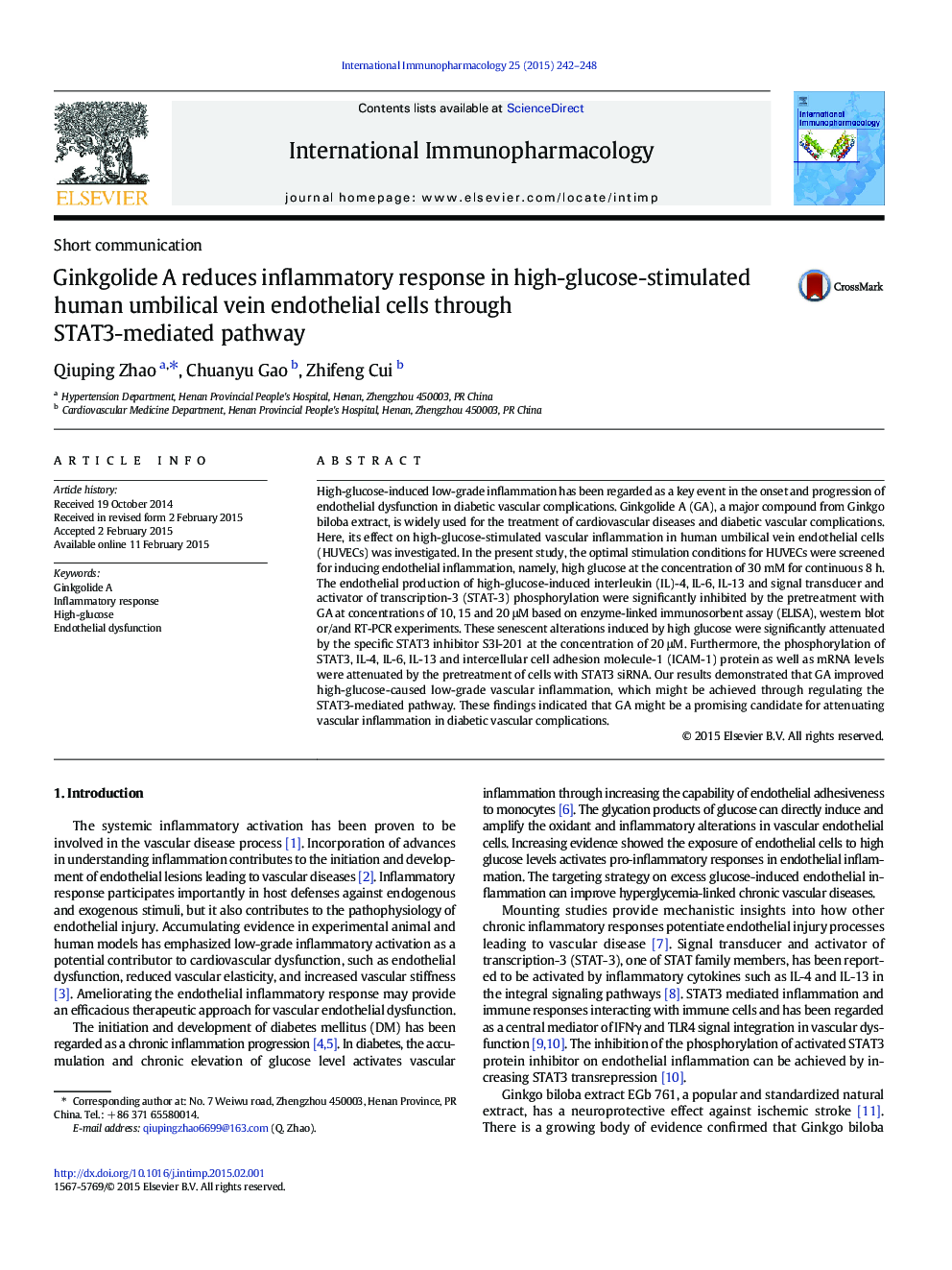| Article ID | Journal | Published Year | Pages | File Type |
|---|---|---|---|---|
| 2540572 | International Immunopharmacology | 2015 | 7 Pages |
•Ginkgolide A attenuates high-glucose-stimulated vascular inflammation.•This mechanism was related to STAT3-mediated pathway.•Specific STAT3 inhibitor or STAT3 siRNA reduces inflammatory mediator levels.
High-glucose-induced low-grade inflammation has been regarded as a key event in the onset and progression of endothelial dysfunction in diabetic vascular complications. Ginkgolide A (GA), a major compound from Ginkgo biloba extract, is widely used for the treatment of cardiovascular diseases and diabetic vascular complications. Here, its effect on high-glucose-stimulated vascular inflammation in human umbilical vein endothelial cells (HUVECs) was investigated. In the present study, the optimal stimulation conditions for HUVECs were screened for inducing endothelial inflammation, namely, high glucose at the concentration of 30 mM for continuous 8 h. The endothelial production of high-glucose-induced interleukin (IL)-4, IL-6, IL-13 and signal transducer and activator of transcription-3 (STAT-3) phosphorylation were significantly inhibited by the pretreatment with GA at concentrations of 10, 15 and 20 μM based on enzyme-linked immunosorbent assay (ELISA), western blot or/and RT-PCR experiments. These senescent alterations induced by high glucose were significantly attenuated by the specific STAT3 inhibitor S3I-201 at the concentration of 20 μM. Furthermore, the phosphorylation of STAT3, IL-4, IL-6, IL-13 and intercellular cell adhesion molecule-1 (ICAM-1) protein as well as mRNA levels were attenuated by the pretreatment of cells with STAT3 siRNA. Our results demonstrated that GA improved high-glucose-caused low-grade vascular inflammation, which might be achieved through regulating the STAT3-mediated pathway. These findings indicated that GA might be a promising candidate for attenuating vascular inflammation in diabetic vascular complications.
